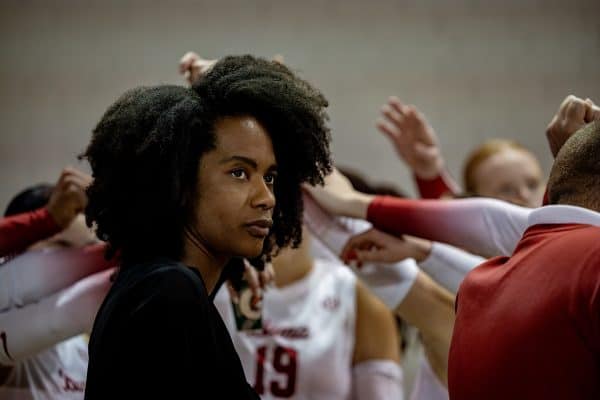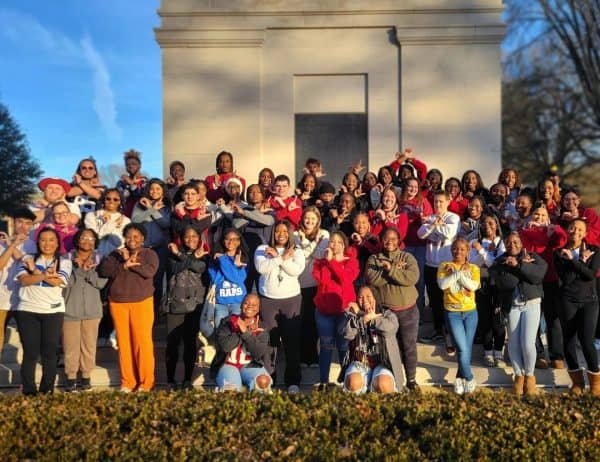The lasting impact of Wendell Hudson
October 19, 2022
When Jock Sutherland walked into A.H. Parker High School in 1969, people thought he was lost.
After all, what was a white assistant from The University of Alabama doing at a predominantly Black high school in Birmingham? The answer was simple, he was looking for basketball players.
As he watched Parker play against George Washington Carver High School, another majority-Black school from Birmingham, one player in particular stuck out to him.
“This guy can play,” Sutherland thought.
That player was Wendell Hudson, a pure scorer who could jump out of the gym and wasn’t bothered when a double-team was thrown his way.
Sutherland helped recruit Hudson to Alabama to play for head coach C.M. Newton, later that year making Hudson the first Black athlete on scholarship in The University of Alabama’s history.
Hudson was a trailblazer, an inspiration, a beacon of hope for The University of Alabama and the state as a whole. Not to mention, he was a pretty good basketball player too.
During his time at Alabama as a player, Hudson made multiple all-SEC teams, multiple all-America teams and was named SEC Player of the Year.
“From a player’s perspective you look at what he did on the court, automatically he goes up at or near the top as one of the greatest players in the history of the program,” said Bryan Passink , a former Alabama basketball player and Crimson Tide Sports Network analyst. “That in and of itself garners so much respect from former and current players.”
As Hudson was deciding whether to go to Alabama, he had two thoughts in his mind.
“First, I thought I could play there. I’d seen Alabama play and I knew I was better than some of those guys,” Hudson said with a laugh. “Two, I thought nobody was going to bother me because I’m tough enough.”
Hudson iterated that he wasn’t worried about his experience with negative race relations when he went to Alabama not only because of his mindset as a young man, but also the way he had been taught to think as he grew up.
“At that time, I was 17 or 18 years old, I thought I was tough enough to handle anything,” Hudson said. “In my family and my high school, nobody talked about not deserving to go anywhere. There was never an idea in my mind that I was inferior to anybody. There were some people that felt that way, but I never felt that way.”
Hudson’s mother was not as worry-free as he was.
“My mother was not crazy about it. She was not against Alabama, but nobody else has done it before,” Hudson said. “C.M. [Newton] told her, ‘We’re not going to sit here and tell you everything will be rosy and OK, but we will promise you we’ll treat him well and do everything we can to take care of him.’ And he lived up to that.”
One of the lasting impressions that Hudson always left with people throughout his life was how genuine of a person he was.
“There’s just not a better guy,” Crimson Tide Sports Network broadcaster Chris Stewart said. “Kind, compassionate. I’ve learned over time from observing and hearing, he’s probably one of the most forgiving people you could imagine. I’m very honored and grateful that I get to call him a friend.”
After his career was over, The University of Alabama decided to retire Hudson’s No. 20 jersey and hang it in the Coleman Coliseum rafters, the first and only jersey retired in program history. The ceremony was held on Feb. 15, 2020.
“Wendell meant so much and represented so much both on the floor and obviously off, that I thought it was a wonderful idea and that it was a well-deserved honor,” Stewart said. “It recognized what he did while he played at The University of Alabama, who he was when he played and coached, but also an unbelievable inspiration to anybody that aspires to be great.”
Passink shared this sentiment, and said he was proud of the gesture itself being made by the University.
“I was proud of Alabama, the athletic department and the basketball program, that they did something that is not the norm,” Passink said. “It was so well-deserved. It was amazing to be courtside when it was unveiled in the rafters. It was emotional because I know Wendell very well, I know his story very well, I read about his story before I met him, and I’ve heard his story firsthand.”
After Hudson’s playing career was over, he began coaching and eventually returned to Alabama to be the head coach of the women’s basketball team from 2008-2013. His coaching tenure was felt all around the state as he revitalized the struggling program in many ways.
“He restored relationships within the state of Alabama. The situation he inherited was a trainwreck, and you can quote me,” Stewart said. “Bridges had been burned, relationships with high school coaches had been torched around our state, and Wendell built those back and was a perfect transition to a great lady and a really good coach in Kristy Curry.”
Stewart over the years has seen the lasting effects of Hudson’s legacy as a player, coach and one of his good friends. On top of all of that, Hudson’s legacy lives on in the Stewart household.
“I’ve got a child named Hudson,” Stewart said. “My wife picked the name, first and foremost. Part of it has to do with a couple of physicians that meant a lot. I said, ‘That’s OK, you can do it for that reason, but as far as I’m concerned, he’s named for Wendell Hudson.’ In fact, I call my child Hud, because that’s Wendell Hudson’s nickname.”
Wendell Hudson is a name that should be celebrated throughout The University’s campus for the legacy he left, not only on the court as an incredible basketball player, but off the court as a man who embodied kindness, compassion, and forgiveness, as an ambassador of The University of Alabama and a landmark of the progress that has been made.
“[His legacy is] immeasurable,” Passink said. “When you look at the history of the University and the athletic department you think of names like Bear Bryant, Nick Saban, Wimp Sanderson and Wendell Hudson. His name is up there as one of the most influential and important people in the history of the Alabama athletic program, which is one of the most storied programs in the country.”
In Hudson’s time at Alabama, he learned many things from Newton, but one thing sticks out the most to him all these years later.
“C.M. used to tell me, ‘Son, you weren’t just a good player, but you were the right person. You always handled the bad as good as you did the good.’ I didn’t understand that until I became much older,” Hudson said.
Hudson left a lasting impact on a broken school and helped spark change that still reverberates through the halls of Coleman Coliseum and Mal Moore Athletic Facility to this day.
“I think he is a great example of where we’ve come from, and while I know there’s still a lot of work to be done, it also shows where we are,” Stewart said. “While there were people that wanted to fight over the fact that he was at Alabama and wearing an Alabama uniform, there are infinitely more today that would fight by his side or in front of him if ever a harsh word was said he way. He’s that highly regarded.”
Questions or comments? Email Austin Hannon (Sports Editor) at [email protected]











